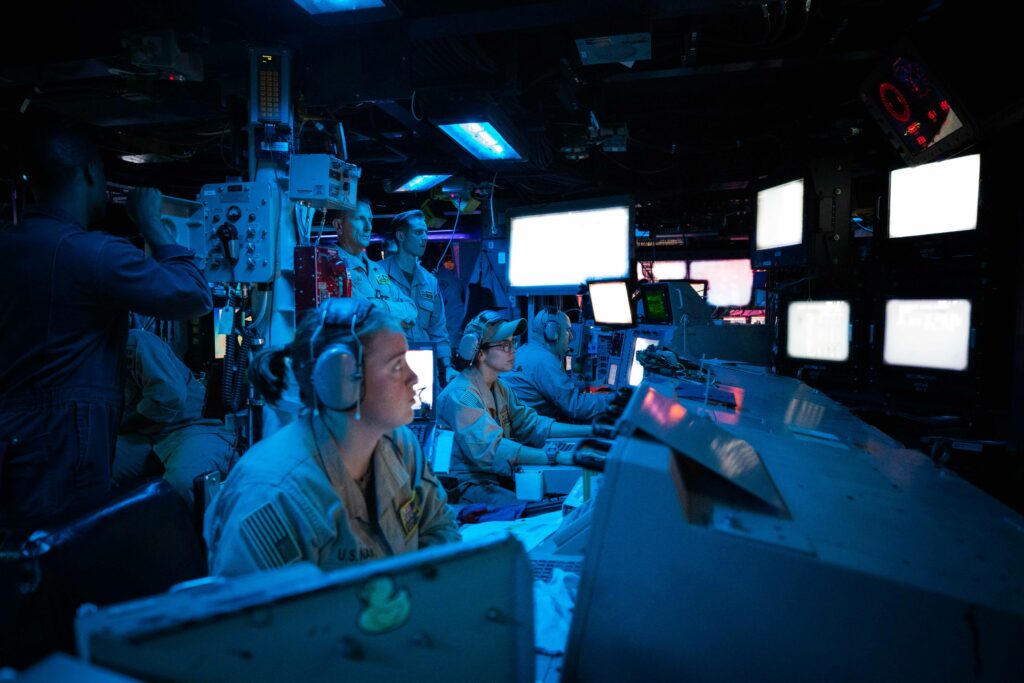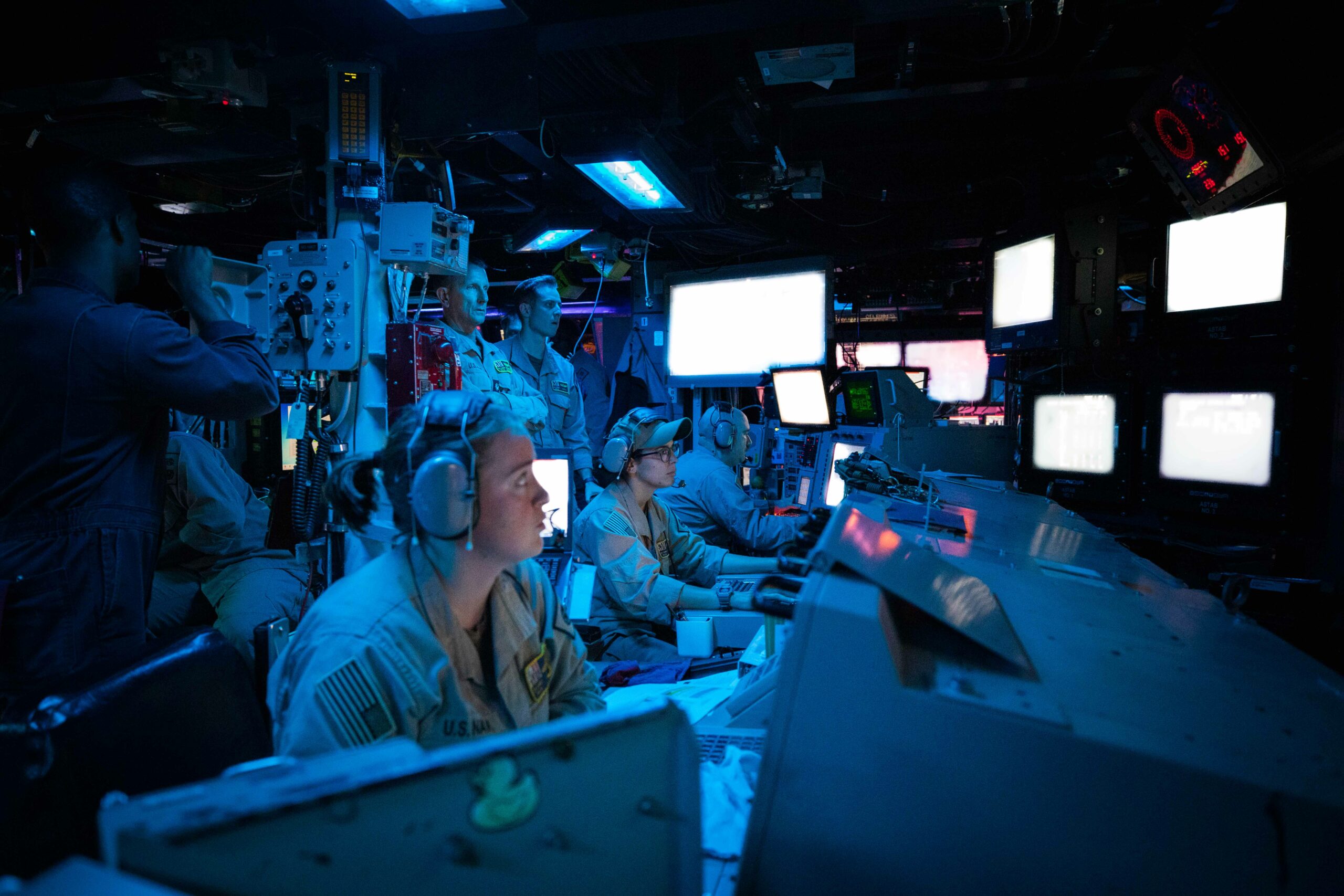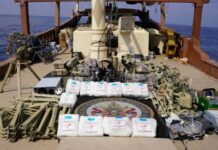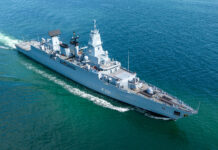Following the recent attacks by Houthi rebels on merchant ships in the Red Sea, the United States and nine other countries formed a military coalition on 18 December 2023 under the title Operation ‘Prosperity Guardian’ to protect international shipping in the region and secure freedom of navigation.
In addition to the US, Bahrain, France, Italy, Canada, the Netherlands, Norway, the Seychelles, Spain and the United Kingdom are also taking part.
Under the initiative some countries will carry out joint patrols, while others will provide intelligence support in the southern Red Sea and the Gulf of Aden.
The background to this is the repeated attacks by the Houthi militia in Yemen on ships in the Red Sea, particularly during their passage through the Bab al-Mandeb strait.
The Houthis: a clear threat
The Houthi militia has repeatedly declared that it will target all ships in the Red Sea that can be linked to Israel in any way, regardless of their nationality, “if Gaza does not receive the food and medicine it needs”.
On 19 November 2023 a group of Houthi militia kidnapped the car transporter Galaxy Leader (flag state Bahamas) and is holding it hostage. It now serves as an attraction for Yemeni tourists and influencers. On 11 December the tanker Strinda was hit by a Houthi missile, although the attack did not cause any major damage or casualties. Units of the French Navy, the Royal Navy and the US Navy have repeatedly fended off attacks by unmanned aerial vehicles (UAVs) bearing explosives in recent days. USS Carney (DDG 64), an Arleigh Burke-class destroyer, intercepted a swarm of 14 UAVs launched from Yemen on 16 December.
In a press release on the morning of 19 December the Pentagon summarised that “the Houthis have conducted over 100 unmanned aerial system (UAS) and ballistic missile attacks on 10 commercial vessels involving more than 35 different nations”.
Longer transit times, rising costs
According to information ESD has received from German shipping circles, the situation in the Red Sea is becoming increasingly acute. Ships are being hit by speedboats or approached by helicopters, as occurred with Galaxy Leader. The shipping companies Maersk and Hapag Lloyd are refraining from sailing in the Red Sea after attacks on their ships and other companies are following their example.
The Red Sea is an important shipping route, with 10-15% of world trade passing through the waterway. In other words, around fifty large merchant ships would typically pass every day through the Bab-al-Mandeb, the strait at the southern entrance to the Red Sea, on their way to the Suez Canal.
The alternative route via the Cape of Good Hope on the southern tip of Africa requires a much longer transit time, with a ship travelling at 18 knots from Shanghai to Rotterdam, for example, taking eight days longer to complete its trip.
As a consequence of the repeated attacks the British oil company BP announced on 18 December that it was cancelling all voyages through the Red Sea: a decision also announced by four other major shipping companies around the same time, including the Danish company Maersk and the German shipping company Hapag-Lloyd.

The US takes the initiative
The US-led operation announced by Defence Secretary Lloyd Austin is to operate under the umbrella of the Combined Maritime Forces and Task Force 153. With the establishment of the multinational security initiative Washington is taking the initiative and trying to make up ground. While the US Biden administration has made efforts to counter instability in the Middle East by developing a regional security architecture based on greater co-operation between Israel and the Gulf states, that initiative have been undermined by the war in Gaza prompted by the Hamas attack on Israel on 7 October 2023.
During his trip to the Middle East in mid-December Austin convened a virtual conference with defence ministers and other high-level representatives from 43 countries, the European Union and NATO to discuss the growing threat to maritime security in the Red Sea.
Escalation avoidable?
For years the Houthi have been threatening the sea route in the Red Sea and the Gulf of Aden, but a co-ordinated response to this long-simmering problem has not yet been found. Failing a diplomatic solution, the focus has shifted to military measures, which could include moves against Houthi bases on land.
Such discussions appear to be taking place. French Foreign Minister Catherine Colonna, who was in Israel over the weekend of 16-17 December, was quoted in the French press as saying that several defensive options are “under consideration”. According to a Politico magazine report on 16 December, high-ranking officials in the Biden administration are examining the possibility of a counter-strike against the Houthis. The US aircraft carrier group led by USS Dwight D Eisenhower was ordered from the Persian Gulf to the Gulf of Aden in mid-December.
However, military intervention in the region risks a possible provocation of Iran, which is regarded as a major supporter of the Houthis. It has emerged that Oman has initiated mediation initiatives, while Reuters reported on 7 December that Saudi Arabia asked the US to exercise restraint.
The approach adopted via Operation ‘Prosperity Guardian’ is subliminal; it is debatable whether it will produce a sustainable result.
After all, the attacks by the Yemeni militias are merely a symptom of a conflict that is overshadowing the region, with no real long-term solution in sight.
CTF 153
Combined Task Force 153 (CTF 153) is one of the five task forces operated by the Combined Maritime Forces (CMF). Its mission is to focus on international maritime security and capacity building in the Red Sea, Bab al-Mandeb and the Gulf of Aden.
Established on 17 April 2022, CTF 153 is staffed by up to 15 US and international military personnel from CMF member nations. When not at sea, CTF 153 personnel work in shore-based offices at CMF Headquarters in Manama, Bahrain.
The EU falls behind
As far as the EU is concerned, it can be said that it has (once again) missed out on an opportunity to present itself as a security architect. The EU failed to seize its opportunity after Washington’s attempts to establish a new regional order did not materialise, while the EU is not using its own instruments. For the Gulf of Guinea, Brussels launched a maritime security co-operation in the form of the ‘Coordinated Maritime Presence’. The EU’s ‘Atalanta’ operation could be implemented in the same way as the ‘European Maritime Awareness in the Strait of Hormuz (EMASoH)’ by adapting its geography and content to the new challenge.













